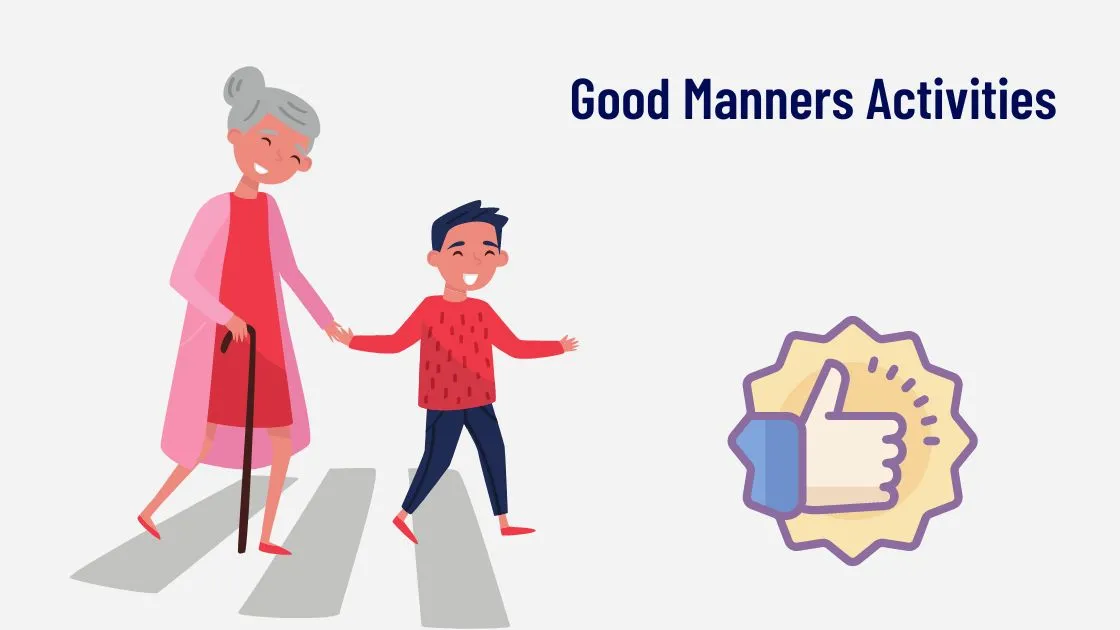Thought-Provoking “Good Manners” Thought of the Day, Activities and Speech Topics for Morning Assembly
As you know, we are working on ‘Good Morning Assembly’ in schools around the world. That’s why we are covering all the important points of daily school assemblies. Morning assemblies are a great ignition for starting the positive day of schools.
Schools can make their morning meetings more attractive with wonderful topics like positive mindset, inspirational thoughts, moral values and good manners. So, we decided to cover the topic ‘Good manners’ for the school morning assembly. Let’s have a look at the thought of the day on good manners and values.
Explore inspiring quotes, engaging activities, and thought-provoking speech topics to cultivate good manners in morning assemblies. Start the day with positivity!
| Quote | What Kids Will Learn |
|---|---|
| Kind words can be short but their echo is endless | The power of positive communication |
| Respect is like a mirror – what you show is what you get | The importance of mutual respect |
| A smile is the universal language of kindness | Kindness is universally understood |
| Treat others the way you’d like to be treated | The Golden Rule principle |
| Good manners are not an empty form. They are the expression of inner respect for yourself and others | The connection between good manners, self-respect, and consideration |
| Listen to understand not to reply | The importance of good listening |
| Saying ‘please’ and ‘thank you’ opens doors and hearts | The significance of basic courtesies |
| Manners are a small price to pay for peace and comfort | Good manners contribute to a positive environment |
| Small acts of kindness can make a big difference | The impact of small acts of kindness |
| Remember it is always better to be kind than clever | The superiority of kindness over cleverness |
Short Inspirational Quotes on Good Manners for Kids
- Politeness is the flower of humanity – Joseph Joubert
- Good manners will open doors that the best education cannot – Clarence Thomas
- The hardest job kids face today is learning good manners without seeing any – Fred Astaire
- Courtesy is as much a mark of a gentleman as courage – Theodore Roosevelt
- Manners easily and rapidly mature into morals – Horace Mann
- Kindness and politeness are not overrated at all. They’re underused – Tommy Lee Jones
- Respect for ourselves guides our morals; respect for others guides our manners – Laurence Sterne
- Life be not so short but that there is always time for courtesy – Ralph Waldo Emerson
- The real test of good manners is to be able to put up with bad manners pleasantly – Kahlil Gibran
- Good manners are just a way of showing other people that we have respect for them – Bill Kelly
Quotes on the Importance of Saying “Please” and “Thank You”
- A simple ‘Please’ and ‘Thank you’ can open many doors
- Gratitude is the most exquisite form of courtesy – Jacques Maritain
- Please and thank you are still the magic words
- The small courtesies sweeten life; the greater ennoble it – Christian Nestell Bovee
- Magic words of please and thank you turn our day around
- Please is a powerful word for all that’s kind and good
- Thank you is the best prayer that anyone could say – Alice Walker
- Saying thank you is more than good manners. It is good spirituality – Alfred Painter
- Please and thank you are the keys to peace
- Gratitude makes sense of our past brings peace for today and creates a vision for tomorrow – Melody Beattie
Encouraging Respect and Understanding in Communication
- To speak kindly does not hurt the tongue – Proverb
- Listen with the intent to understand not the intent to reply – Stephen R. Covey
- Treating others as you wish to be treated kills two birds with one stone – Respect and kindness
- Words are free. It’s how you use them that may cost you
- Speak in such a way that others love to listen to you – Unknown
- Understanding is the first step to acceptance and only with acceptance can there be recovery – J.K. Rowling
- The art of communication is the language of leadership – James Humes
- Be the reason someone believes in the goodness of people – Karen Salmansohn
- Your words have power. Use them wisely
- Every act of kindness grows the spirit and strengthens the soul
The Power of Apologies and Forgiveness
- An apology is a lovely perfume; it can transform the clumsiest moment into a gracious gift – Margaret Lee Runbeck
- Forgiveness is the attribute of the strong – Mahatma Gandhi
- Saying sorry means nothing if you keep repeating the same mistake
- The first to apologize is the bravest. The first to forgive is the strongest
- Apologies require vulnerability
- Forgiveness does not change the past but it does enlarge the future – Paul Boese
- An apology is the superglue of life. It can repair just about anything – Lynn Johnston
- Always forgive your enemies; nothing annoys them so much – Oscar Wilde
- A sincere and warmly-expressed apology can produce the same effects as morphine on a suffering soul
- Never ruin an apology with an excuse – Benjamin Franklin
Cultivating Patience and Listening in Good Manners
- Patience is not simply the ability to wait – it’s how we behave while we’re waiting – Joyce Meyer
- Two ears one mouth. Use them in that ratio
- Listening is an art that requires attention over talent spirit over ego patience over haste – Dean Jackson
- The test of good manners is to be patient with the bad ones – Solomon Ibn Gabirol
- Patience is the companion of wisdom – Saint Augustine
- To listen closely and reply well is the highest perfection we are able to attain in the art of conversation – François de La Rochefoucauld
- Good things come to those who wait but better things come to those who are patient
- Be patient and understanding. Life is too short to be vengeful or malicious – Phillips Brooks
- The art of conversation lies in listening – Malcolm Forbes

List of Speech Topics on Good Manners in Morning Assembly
| Speech Topic | Theme | Value |
|---|---|---|
| The Importance of Saying “Please” and “Thank You” | Good manners in daily interactions | Promoting a culture of gratitude |
| The Role of Politeness in Building Positive Relationships | Etiquette in social interactions | Creating harmony in communities |
| Why Listening Is an Essential Aspect of Good Manners | Active listening skills | Fostering understanding and empathy |
| Demonstrating Respect Through Body Language | Non-verbal communication | Cultivating mutual respect |
| The Impact of Kind Words on Others | Positive communication | Spreading kindness and positivity |
| Dining Etiquette: The Art of Eating Politely | Proper table manners | Enhancing dining experiences |
| The Significance of Holding Doors for Others | Acts of courtesy | Promoting consideration and kindness |
| Dealing with Conflict Respectfully | Conflict resolution strategies | Maintaining harmony in relationships |
| The Importance of Apologizing Sincerely | Owning up to mistakes | Repairing relationships |
| Demonstrating Good Manners in Digital Communication | Online etiquette | Respecting others in the digital world |
| The Power of Compliments in Building Confidence | Giving and receiving compliments | Boosting self-esteem and morale |
| The Value of Patience in Polite Behavior | Managing frustration | Promoting calm and understanding |
| Demonstrating Respect for Personal Space | Respecting boundaries | Fostering a sense of security |
| The Role of Tact in Honest Communication | Diplomacy in conversations | Balancing honesty and sensitivity |
| The Importance of Punctuality in Showing Respect | Time management | Valuing others’ time |
| Cultivating a Habit of Thankfulness | Gratitude practices | Fostering a positive mindset |
| Displaying Good Manners in Public Spaces | Civic responsibility | Creating a welcoming environment |
| The Impact of Role Models on Manners | Exemplary behavior | Inspiring others through actions |
| The Connection Between Good Manners and Self-Respect | Personal integrity | Building character |
| Spreading Kindness Through Random Acts | Small gestures of kindness | Creating a ripple effect of positivity |
Character Development Activities in Morning Assemblies

Activity 1- Role-playing Scenarios:
Step 1: Divide students into small groups.
Step 2: Assign each group a scenario (e.g., dining etiquette, greeting others, resolving conflicts).
Step 3: Have groups act out the scenario, focusing on demonstrating good manners.
Step 4: After the role-play, facilitate a discussion about their actions, highlighting positive examples and areas for improvement.
Step 5: Provide feedback and guidance on how to handle similar situations with good manners in the future.
Activity 2 – Good Manners Poster Creation:
Step 1: Introduce the concept of good manners and their importance.
Step 2: Explain the task of creating posters illustrating various aspects of good manners (e.g., saying please and thank you, holding doors).
Step 3: Provide art supplies and encourage students to unleash their creativity.
Step 4: Once completed, display the posters prominently around the school to serve as reminders of good manners.
Step 5: Discuss the posters as a group, highlighting key messages and reinforcing the importance of practicing good manners.
Activity 3 – Thank You Letter Writing:
Step 1: Discuss the importance of gratitude and appreciation in demonstrating good manners.
Step 2: Provide examples of situations where thank-you letters are appropriate.
Step 3: Have students choose someone who has shown them kindness or helped them.
Step 4: Guide students through the process of writing a thank-you letter, emphasizing sincerity and specific details.
Step 5: Encourage students to deliver or mail their letters, fostering a culture of gratitude.
Activity 4 – Role Model Presentations:
Step 1: Introduce the concept of role models and their influence on behavior.
Step 2: Assign students to research historical figures, celebrities, or fictional characters known for their good manners.
Step 3: Have students prepare presentations highlighting the role model’s behaviors and how they demonstrate respect and kindness.
Step 4: Conduct presentations in class, allowing for discussion and questions afterward.
Step 5: Encourage students to reflect on how they can emulate these positive behaviors in their own lives.
Activity 5 – Kindness Challenge:
Step 1: Explain the kindness challenge and its goal of promoting positive behavior.
Step 2: Provide a list of suggested acts of kindness (holding doors, compliments, helping others).
Step 3: Encourage students to perform one act of kindness each day for a specified period.
Step 4: Provide opportunities for students to share their experiences and reflections on the challenge.
Step 5: Celebrate the completion of the challenge and discuss its impact on the school community.
Activity 6 – Peer Recognition for Good Manners:
Step 1: Introduce the idea of peer recognition for good manners.
Step 2: Establish criteria for nominating peers (e.g., demonstrating exceptional manners, acts of kindness).
Step 3: Provide a mechanism for students to submit nominations anonymously.
Step 4: Review nominations and select recipients for recognition.
Step 5: Acknowledge and celebrate recipients publicly, reinforcing the value of good manners.
Activity 7 – Reflective Journaling on Personal Manners:
Step 1: Explain the purpose of reflective journaling in fostering self-awareness.
Step 2: Encourage students to set aside time regularly to reflect on their experiences with manners.
Step 3: Provide prompts or guiding questions to help students identify proud moments and areas for improvement.
Step 4: Review journal entries periodically and provide feedback or guidance as needed.
Step 5: Use journal entries as discussion starters to explore the importance of good manners and continuous self-improvement.
- Anchoring Script for Birthday in School Assembly
- 50 Best Thought of the Day on Discipline for Students
- Anchoring Script to Invite Guest for Speech in Morning Assembly
- 50 Moral Value Questions for Morning Assembly Meetings
We hope you enjoy these simple but powerful ideas for starting your day with kindness and respect. Let’s join hands to make every interaction important and every moment memorable.
You can use these thought-provoking ideas, exciting activities, and motivational speech topics that promote a culture of courtesy and consideration. Here’s to a morning meeting full of the magic of positivity and good manners!





2 thoughts on “Good Manners Quotes, Activities and Speech Topics for Morning Assembly”